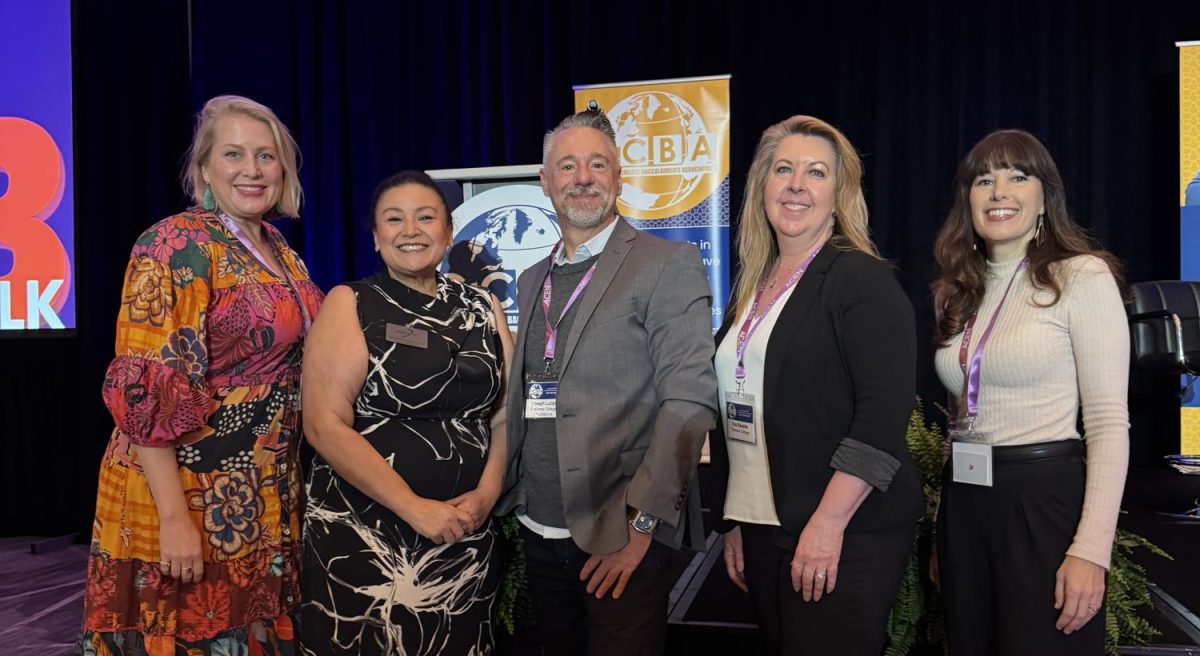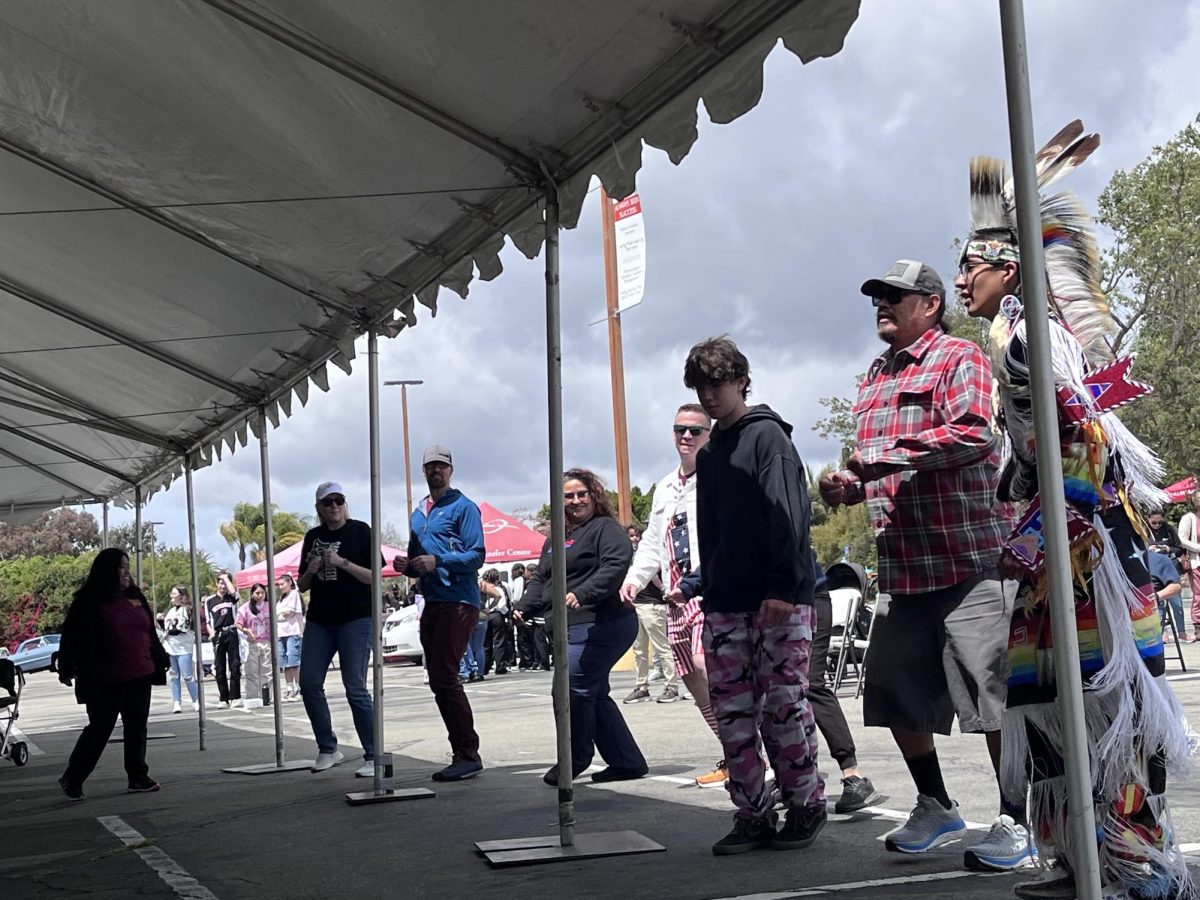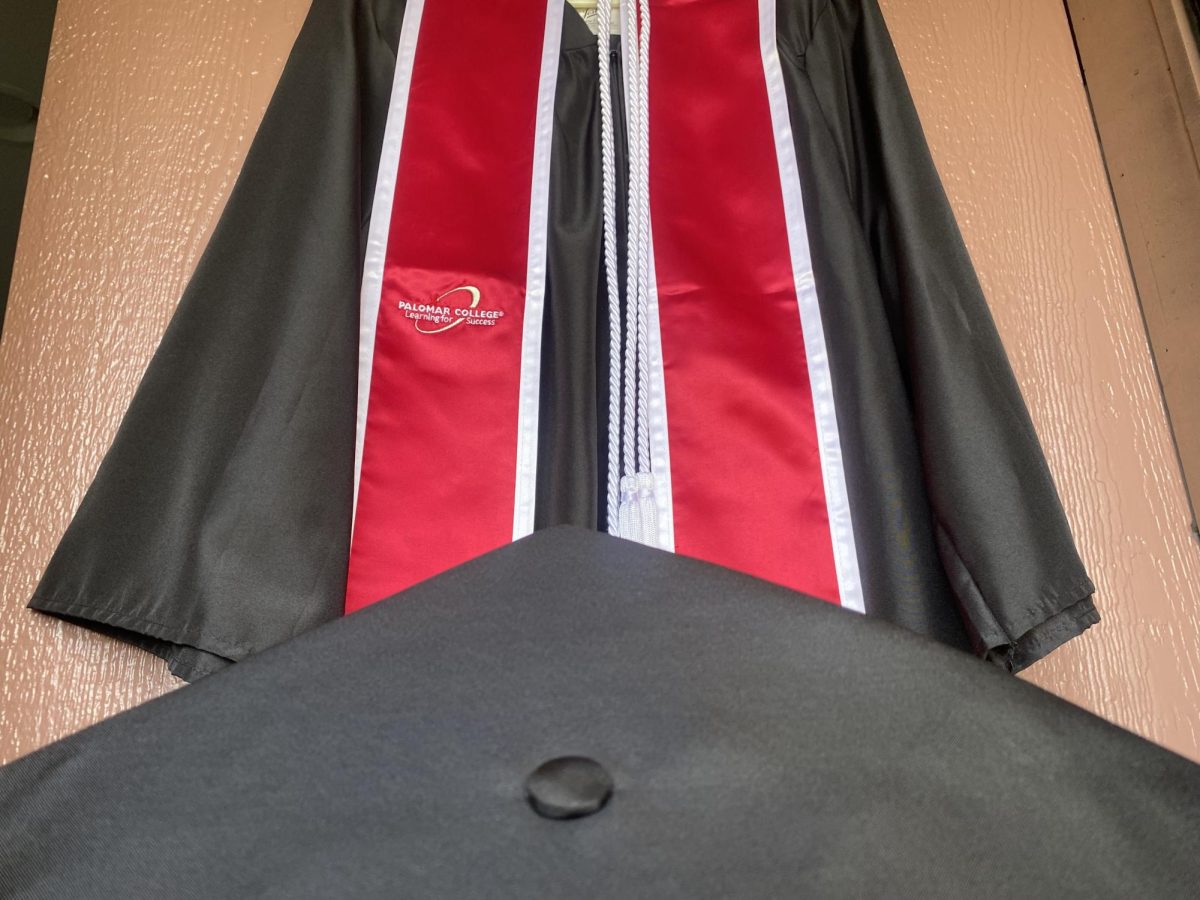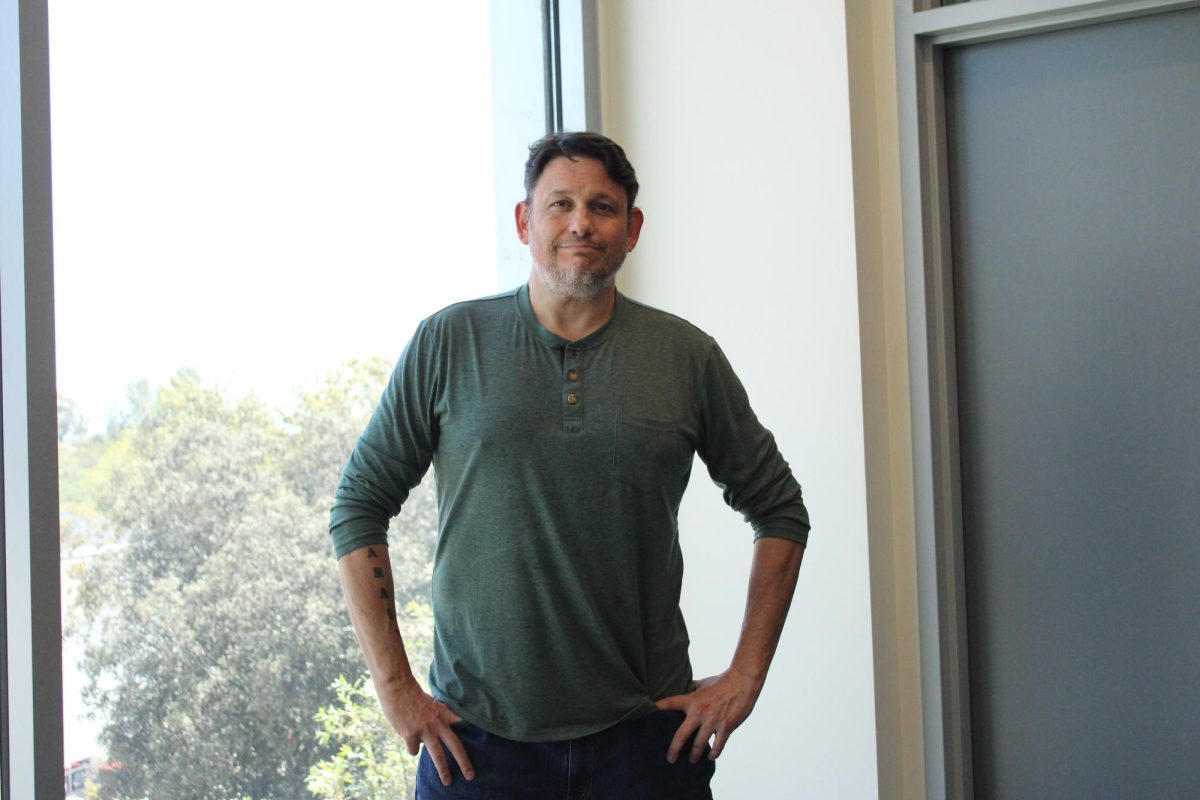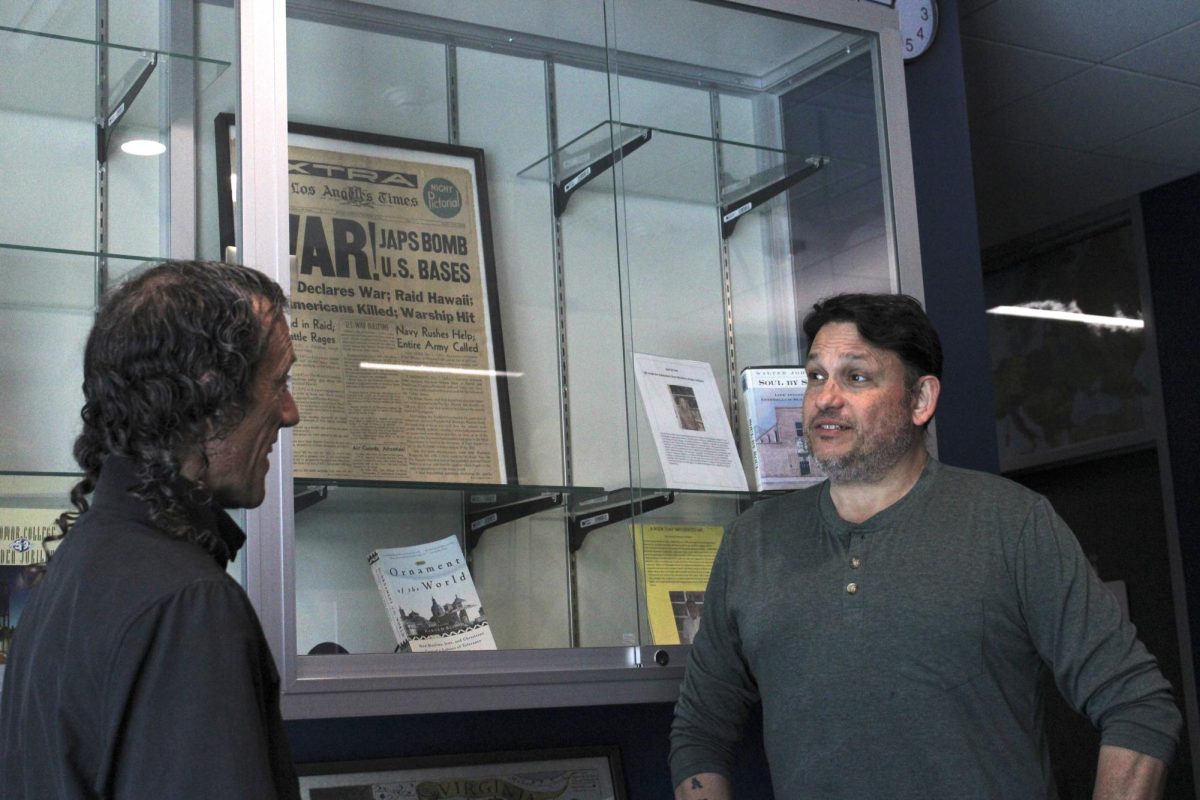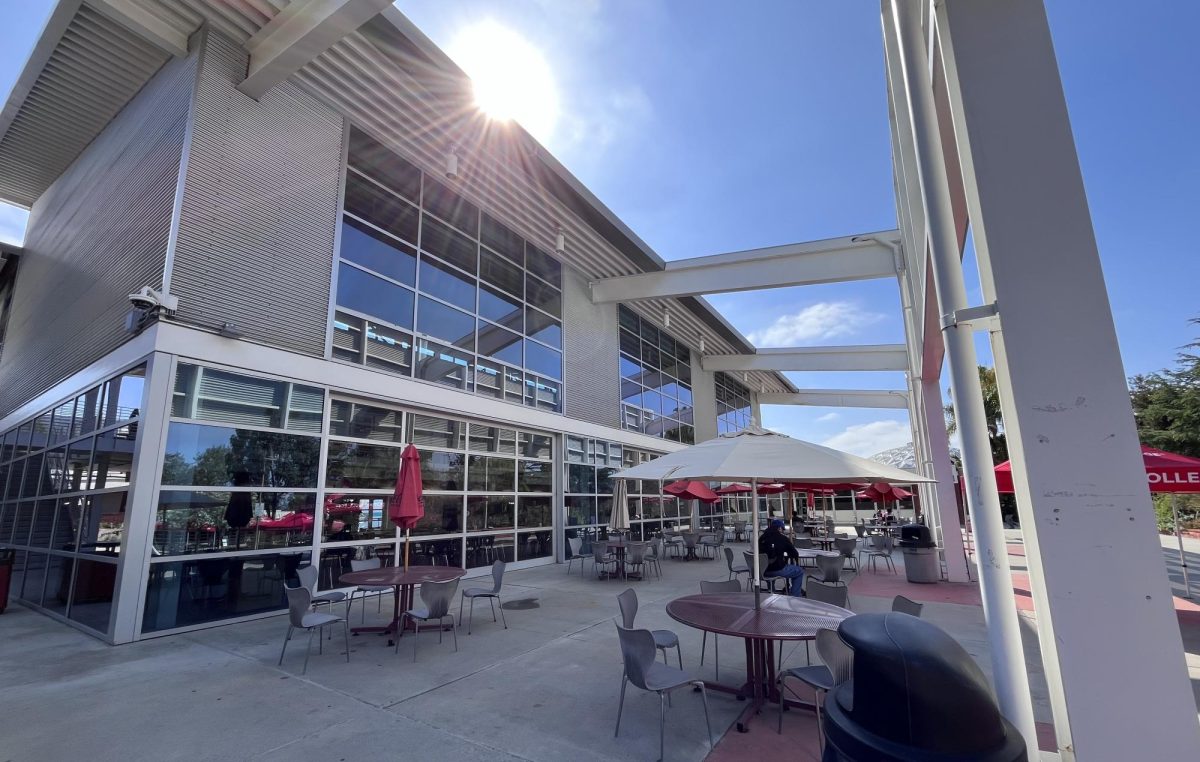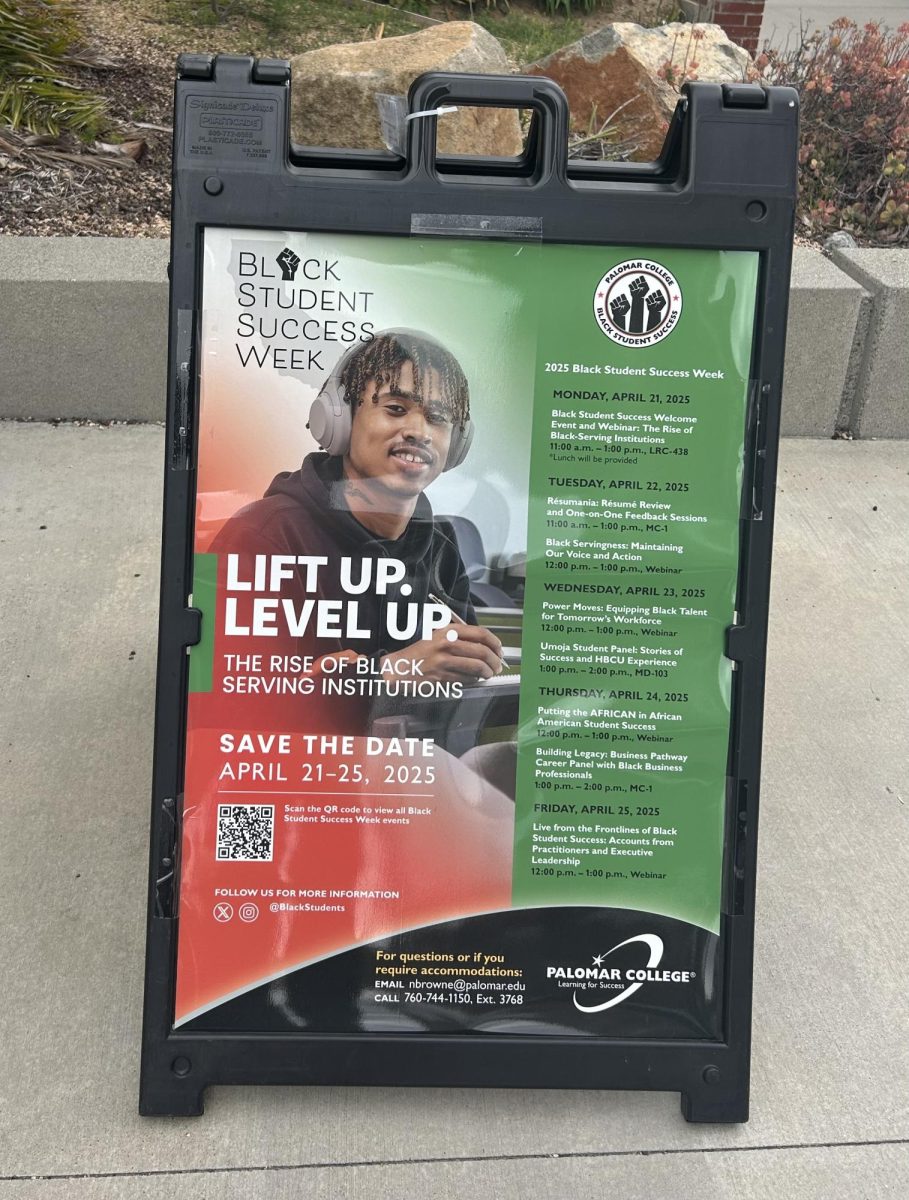SAN MARCOS – The Associated Student Government (ASG) at Palomar College deliberated over various issues on campus, upcoming events, and business resolutions at a recent special meeting.
ASG members discussed topics that could affect student safety and livelihood if passed, from inclusivity of minority groups to the protection of undocumented students. They further discussed new efforts being made by campus police, as well as a student-led movement to bring an honors program to Palomar College.
A majority of this special meeting consisted of debates and tentative votes for ASG to determine how they plan to vote at the upcoming Student Senate for California Community Colleges (SSCCC) General Assembly. Community colleges across California will be coming together at this assembly on April 5-7 to debate various business resolutions.
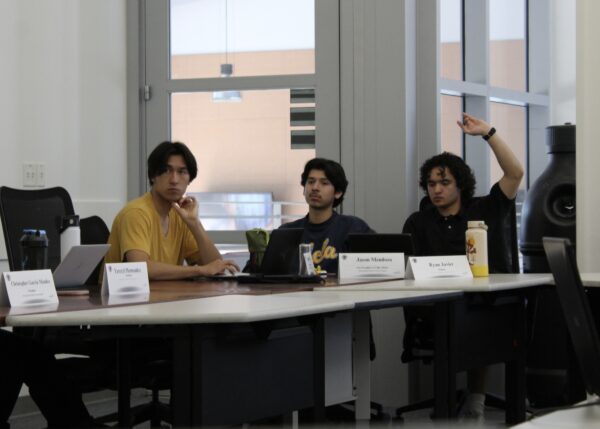
Some of these resolutions will affect Palomar students much more than others. The first being a resolution to ensure undocumented students face no barriers in finding employment on campus and state agencies, as well as being eligible for state and federal assistance programs and grants.
Executive Vice President Dana Garcia-Mendez questioned how undocumented students will be able to receive federal funding and paychecks without a social security number. Despite this, the board decided to tentatively support this resolution in a near-unanimous vote of 8-1, with one member abstaining from voting.
A similar resolution advocates for undocumented students to have access to educational and skill-building programs such as those from the Dream Act Service Incentive Grant Program. If passed, this resolution would recommend the reallocation of budget resources on campuses to cater towards undocumented students and programs that would benefit them.
Dana Garcia-Mendez once again questioned where the financing would come from to support this resolution, but it was still tentatively approved by the board.
In a resolution urging for LGBTQIA+ Inclusivity on campus, Executive Vice President Garcia-Mendez argued that Palomar already makes many inclusive efforts, including pride parades and displaying the pride flag on campus.
In a majority vote, the board decided to tentatively support this resolution, citing that community colleges across California should be making the inclusive efforts that Palomar makes.
A similar resolution promotes transgender, nonbinary, and gender-nonconforming inclusivity by bringing more gender-neutral restrooms in high-traffic areas on college campuses. It would also allow students and faculty to include preferred pronouns on official college documents and websites.
Multiple members of the board gave examples of gender-neutral restrooms across various Palomar campuses being constructed or already existing. The board collectively agreed to continue to support these efforts, however, this resolution was discussed when the board no longer met the necessary voting quorum, so they could not take an official stance.
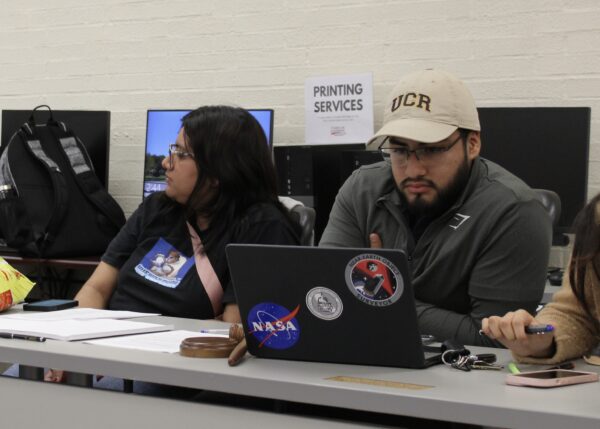
Another major resolution up for debate was for Human Trafficking Awareness, which would provide resources and support against human trafficking across college campuses, as well as encouraging student-led awareness and prevention programs.
The FBI cites San Diego County in the worst 13 regions for human trafficking, according to the San Diego County District Attorney’s website.
Advisor Pippa Pierce addressed that the Empowered Women at Palomar College have already called for these efforts to be made in a recent campaign, so ASG should be using their voices to advocate for what Palomar students feel is important. The board voted unanimously to show tentative support for this resolution.
Another resolution proposed to the board was the implementation of community refrigerators for students in need, stocked by leftover cafeteria food, local markets, and food pantries. Student Trustee Grant Wass argued that a food program like this already exists on the Palomar campus, leading the board to vote against this resolution.
The next topic on the agenda was free or reduced parking permits for students facing financial hardships, but the board voted tentatively against it in a near-unanimous 9-1 vote as programs like Rising Scholars and Extended Opportunity Programs and Services (EOPS) already offer this for Palomar Students.
In a resolution written in part by Palomar ASG member Grant Wass, community colleges would transition to biweekly pay for students in work-study programs to help students pay bills in advance and eliminate equity gaps. The Palomar ASG board members voted unanimously to tentatively support this resolution.
Another major resolution up for debate was the implementation of zero-cost textbooks for basic general education courses. Senator Ryan Javier argued that books can sometimes cost more than classes themselves, and students should not have to face those costs.
This topic was discussed when the board no longer met the voting quorum, so no official vote was held, but the board members unanimously agreed that textbook costs were too extreme and gave their unofficial support for this resolution.
The Palomar Associated Student Government will take their thoughts from these debates to the SSCCC assembly in Santa Clara, California to give their official votes on these resolutions, keeping student interests in mind.
A full list of all business resolutions and in-depth explanations of each can be found on the Student Senate for California Community Colleges website.
In a discussion over official reports, Executive Vice President Dana Garcia-Mendez gave a statement on a recent Campus Police Committee meeting that she had attended. The Vice President said that the Palomar College Police Department has plans to install security cameras around the perimeter of the library on the San Marcos campus.
Vice President Garcia-Mendez added that the police department is in discussion of equipping officers on campus with body cameras in an effort to create a safer environment for students.
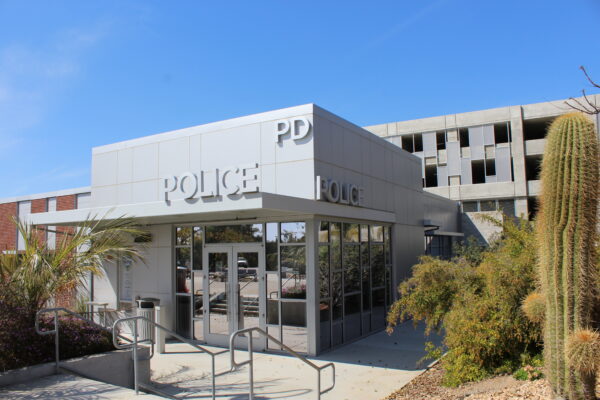
The meeting continued with a presentation from the Vice President of Communications, Kengo Hotta, urging Palomar to bring an honors program on campus. Hotta argued that Palomar is actively losing students to neighboring community colleges that have an honors program on campus. San Diego City College, Mesa College, and MiraCosta College are a few local community colleges that currently offer an honors program.
Phi Theta Kappa is the existing honors society on campus, but it provides no recognition in coursework or on transcripts. So, individual students on campus are beginning to advocate for an official honors program in the classroom.
ASG holds public meetings every Friday in the Student Union with allotted time for public comment. Posted agendas, meeting minutes, and contact information for ASG members can also be found on their website.


